The race to save an Indigenous Brazilian language from extinction
As elders from an Indigenous tribe die of COVID-19, younger members must fight to stop their language dying with them.
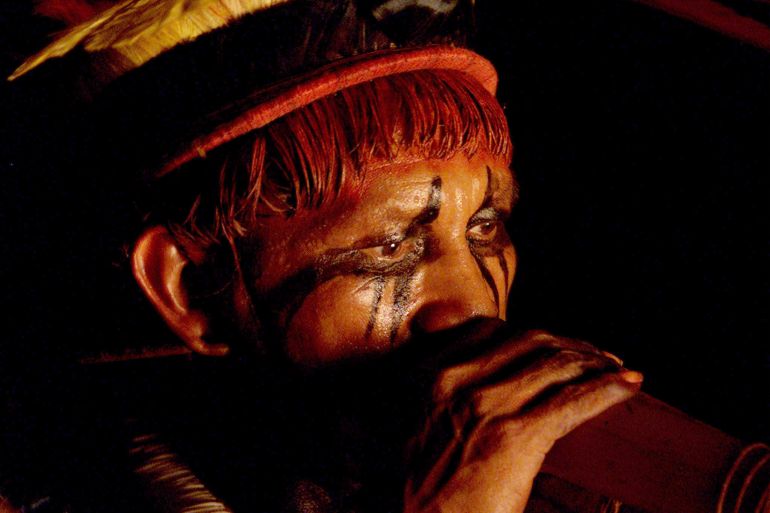
Deep in the state of Mato Grosso, in the heart of Brazil’s vast Xingu National park, the inhabitants of the Indigenous village of Typa Typa can be heard day and night.
From their palm-thatched huts, perched on the southern banks of the Tuatuari river, some five kilometres (three miles) from the Leonardo Villas-Boas Post in the Upper Xingu, the Yawalapiti people of the circular village are mourning the death of their ancestral leader.
Keep reading
list of 4 itemsBrazil indigenous seek to capitalise on agribusiness
Brazil Indigenous chief in hospital for COVID after long journey
Brazil court decision sparks fears over Indigenous land
Chief Aritana Yawalapiti, 71, led his ethnic group for five decades and fiercely defended its traditions, lands and culture. For his family and Xingu supporters, he was a “living library” of the Yawalapiti people, one of the first tribes from the Arawak family lineage to have arrived in the region around 1100 AD.
A noble warrior, Aritana had never lost a Huka-Huka wrestling match, but COVID-19 is an opponent like no other. Even as the disease began to take its grip, marching down his windpipe and striking his lungs, he showed the strength to calm his family’s suffering.
But this would be his final fight.
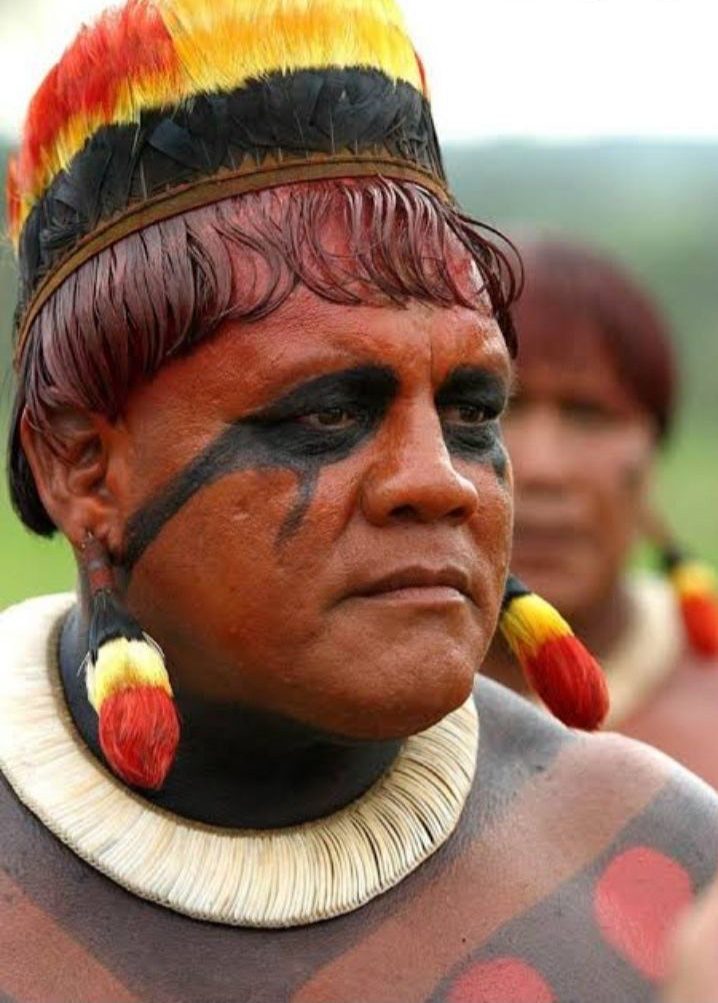
‘Irreplaceable’
Just weeks before Aritana’s death in August this year, panic struck the park when tribe members began to experience flu-like symptoms. Within days, the virus had robbed Aritana of three family members: his 99-year-old mother Tepori Kamaiura, who was from the Kamayura-speaking side of his ancestry, his brother and his niece. Aritana would soon suffer the same fate.
Widely loved, Aritana’s death comes as a devastating blow for Indigenous people across the country and for everyone who met him. When Al Jazeera spoke to Adelino Mendez, an anthropologist at the Federal University of Rio de Janeiro, who studied Aritana’s tribe for more than 20 years and became a good friend of the chief, he struggled to find the words to express his loss.
“Aritana was a benevolent figure and, in my opinion, irreplaceable,” he says, his voice quivering.
Mendez says he has not only lost a dear friend, but also a crucial bridge to one of the rainforest’s most ancient communities and languages. The chief, along with his two brothers, both in their 70s, was one of the last speakers of the Yawalapiti language, the oldest of the languages in the Xingu reserve.
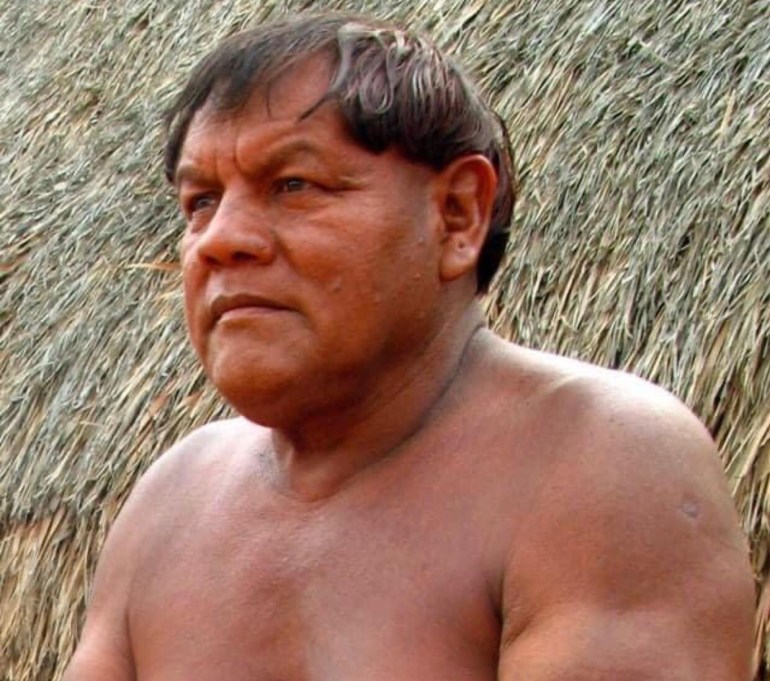
Mendez visited the Xingu park with his son on a number of occasions, forming bonds with Aritana and his relatives. He has fond memories of speaking with Aritana, gathered around the fire in the centre of his hut at night. Aritana would tell him how he, his father and brother, fought for their lands so that one day they could pass it all on to the next generation as a gift.
The gift
That gift is the Xingu reserve, a park that spans more than 2.6 million hectares (nearly 6.5 million acres). It is surrounded by thick rainforest and the Xingu river basin and is some 14 hours’ drive from the city of Goiania in western-central Brazil. It is home to 7,500 Indigenous people from 16 different ethnic groups who speak 11 languages between them. They possess many cultural similarities while celebrating their differences and maintaining their unique cultural identity and traditions.
The national park is predominantly split into three regions, all connected by unpaved dirt tracks: the north – inhabited by the Suya, Yudja and Kaiabi tribes – the central region where the Trumai, Ikpeng and Kaiabi tribes live, and the southern region, home to the Wauja and Yawalapiti tribes among others.

The people of the Upper Xingu were responsible for the cultural traditions of the Xingu and are part of the vast Xingu cultural system in which each tribe exchanges objects of culture, information and teachings.
Although elements of outside society have slowly begun to trickle into Typa Typa, the people there live a largely traditional life with a focus on being in tune with the rainforest and dependent on agriculture.
The Indigenous people of the Xingu eat the food they hunt and fish or grow in their fields. But as deforestation and climate change accelerate, they are being forced to venture into neighbouring villages more frequently, placing them at greater risk of what they regard as negative Western influences.
In the early weeks of autumn, each family tends to their crops of pumpkins, corn and fruits including pequi – a fruit reserved for ceremonial purposes.
The fruit is cut and the flesh peeled, revealing seeds that are extracted and dried, ready for use in the Quarup ritual, the principal funeral ritual which takes place about a year after the death of an important tribal member.
Aritana’s Quarup ritual will be particularly lavish as scholars and members of Indigenous tribes from Brazil and overseas will gather to celebrate his life.
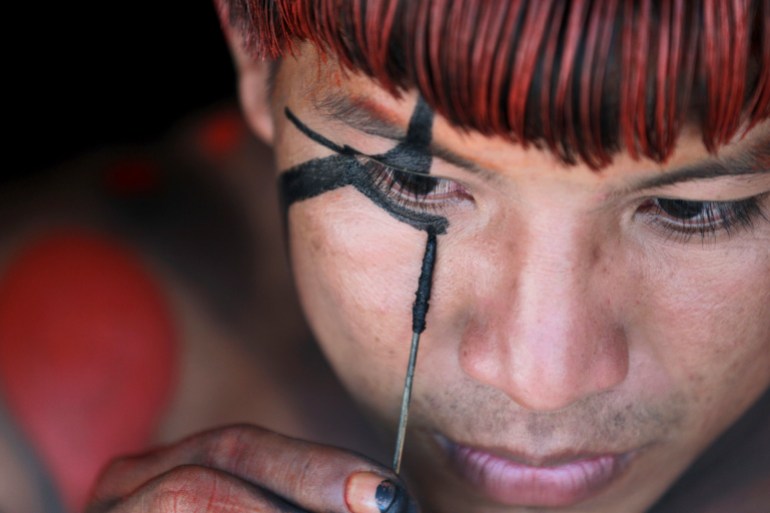
‘We have lost an arm and a leg’
Despite being the first to have arrived in the national park, the Yawalapiti’s numbers have dwindled over the course of 1,000 years. Today, there are only 250 remaining members of the tribe.
Their history is riddled with catastrophes, including Western-imported epidemics and attacks from other tribes, all of which have brought their ethnic group to the brink of extinction.
From the late 1960s, intermarriage with neighbouring Indigenous groups in Xingu has been encouraged as a survival strategy. However, given that the remaining Yawalapiti members were predominantly male and it is the mother’s language that usually passes on to children in this region, the ethnic group began to see its language increasingly under threat.
Now, with its leader’s death, the linguistic identity of the Yawalapiti community is on its last legs.
“We have lost an arm and a leg. All that is left is our right leg. We now need to desperately try to salvage what is left, to put stabilisers on our leg,” says Aritana’s nephew, Walamatiu Yawalapiti, 35, speaking in Portuguese over a WhatsApp audio link from his family home in the village.
‘We’re fighting for our tribe’s survival’
In the Xingu culture, Aritana is now considered to be with the spirit of the forest, river and land. He is looking on from a distance, breathing strength to his people.

The time has come for Tapi, 45, Aritana’s oldest son and successor, to lead the way. He will take his father’s place as chief of a people on the brink of extinction – attempting to take on the mighty task of spearheading, alongside other tribal elders, his father’s fight against the destruction of his people’s culture. He is doing this by beginning the urgent process of documenting the Yawalapiti language for the first time and by actively teaching it to younger generations.
Aritana’s brother, traditional healer Tunulii Yawalapiti, 56, is also trying to come to terms with the loss of his brother while fighting for his tribe’s existence. Expressive, talkative and funny, he is wearing a Flamengo football shirt as he speaks to Al Jazeera via a video call from the home of his friend, photographer Andre Leite, in Sao Paulo during an excursion to promote his plant-based remedy for cancer, Tunulii.
“We’re in battle. We’re fighting for our tribe’s survival. I’m very worried about the future of the Yawalapiti language, it’s dying and we want it alive”.
‘Our leader’s death has left the world poorer’
As COVID-19 continues to wreak havoc worldwide, it has disproportionately affected the elderly across the globe. Since ravaging Brazil’s metropolises, it has moved on to the more remote Indigenous lands and communities.
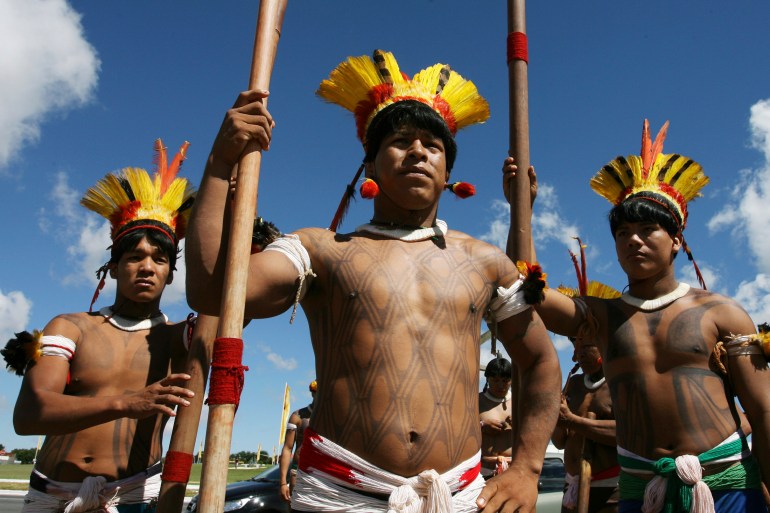
Indigenous Brazilians and their elders are more vulnerable than the general population. They remain especially susceptible to modern-day infections, mainly because of their lack of immunity to foreign diseases, pre-existing health conditions, their remote location and precarious healthcare systems.
Just as diseases brought by European invaders decimated entire Indigenous groups during the colonial period, the COVID-19 pandemic threatens to destroy these vulnerable populations. Aritana is just one of more than 170 Indigenous elders and leaders in Brazil to have died from COVID-19.
More than leaders, they were keepers of their culture. According to the UNESCO Atlas of the world’s endangered languages, all 190 of Brazil’s endangered languages are at risk of extinction, with 45 of them in critical danger. An endangered language is considered to have reached a critical level when the youngest speakers of the language belong to the older generation who only speak the language infrequently.
Amazonas state, in northwest Brazil, is one of the regions worst hit by the pandemic. There, the Tukano people are also grieving for their leader.
“Our leader’s death has left the world poorer,” says Joao Paulo Barreto, an Indigenous activist of the Tukano tribe and an anthropologist and professor at the Federal University of the Amazonas, whose chief, Higino Tenorio Tuyuca, died of COVID in June at the age of 65.
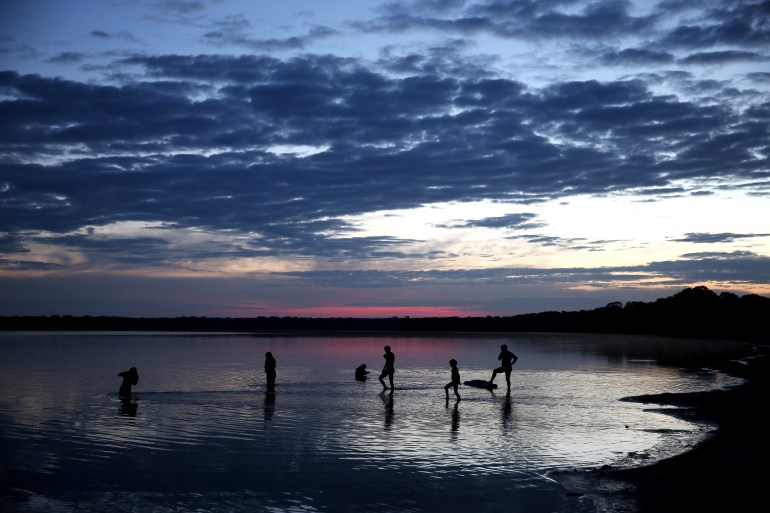
There are currently only 570 fluent speakers of his native Tuyuka language, placing it at severe risk of extinction. The Tukano people are renowned for their multiculturalism. As well as Tuyuka, the younger generation speak up to five additional languages – including Nheengatu, Portuguese, Spanish, Aruaques and Macus – leading to Tuyuka being used less and less within the community.
The mass loss of languages has become a disturbing phenomenon. The studies of the late University of Hamburg professor and linguist Aryon Rodrigues, who died in Brasilia in 2014, show that over a period spanning more than 500 years of contact with Western society, there has been a drastic 85-percent reduction in the number of languages spoken around the world, mostly because of colonisation, epidemics, social pressures and the increasing homogeneity of a few dominant global languages.
The loss of these endangered languages is of particular concern because, aside from being communication tools, they are rich tapestries that offer unique insights into Indigenous peoples’ lives and cultures over centuries.
Indigenous languages rarely have a written form, acting instead as storehouses of oral traditions: stories, songs, poetry, rituals and the telling of historic events that their ancestors endured, passed down through the generations and remaining exceptionally consistent over time and impressively preserved over generations.

‘They are disappearing into the wind’
Walamatiu Yawalapiti, Aritana’s nephew, explains via video call from the corner of his thatched home which his family shares with two others: “You [urbanites] have physical libraries that provide knowledge and cues to your past; we have our elders and they are disappearing into the wind.”
Walamatiu is a teacher and father who is fighting for the preservation of the tribe’s lands and its protection from illegal loggers, cattle ranchers and miners. He is surprisingly calm and composed in his speech, given that he just lost two of his uncles.
When the connection to our call drops, he sends an audio message. “We need to fight for our culture, lands and identity for the sake of our children. They are our hope.”
With the loss of the elders, the Yawalapiti are losing crucial information about their people’s world view, values and principles – as well as the important role women play within the culture. Walamatiu says his ancestors carved their own space for women in their society, free from submission.
After Walamatiu finishes fishing during the day, he joins his wife in teaching his children how to care for their plants and lands. “We also have women chiefs who organise meetings to designate trades of artisan crafts, crops and other goods with different tribes. Men, women and children work together because we are all fighting for and protecting the forest,” he says.
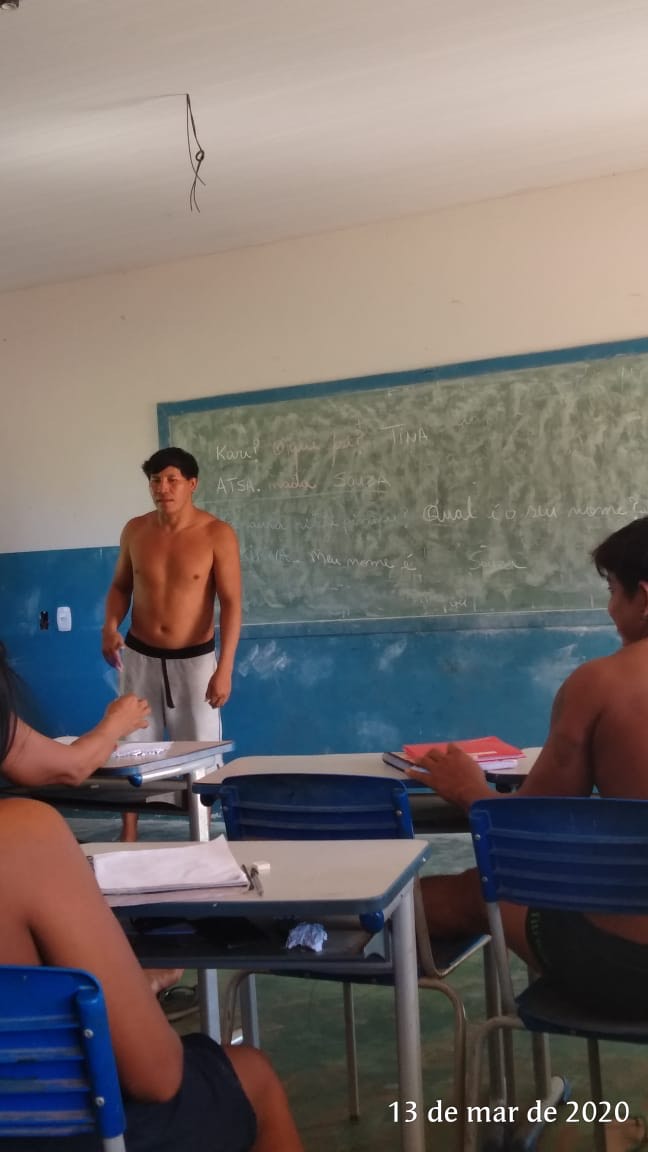
Living encyclopedias
For Mendez, “language is identity, culture and memory”. It is for this reason, he says, that the preservation of Indigenous languages is so vital.
Since these languages are rarely written, they can only survive if people continue speaking them. The older generations are not passing on their languages because of external pressures, violence, suppression and displacement from their ancestral lands. As a result, the world’s dominant languages such as English, Portuguese and Spanish are becoming the principal languages taught in educational institutions, including Indigenous schools.
As the number of languages decreases, detailed knowledge about the environment in which Indigenous people live, as well as knowledge of traditional medicine and natural ecosystems that remain undeciphered by the rest of the world is being lost.
“The elders are true living encyclopedias who transmit traditional knowledge to future generations, such as language, diverse cultural patterns, ethnic knowledge of fauna and flora; in short, their world view of the world around them,” Angel Cobera Mori, professor of linguistics at the State University of Campinas and a specialist in Amerindian languages, explains.
Since the custom of elders passing on their knowledge to the next generation has started to fall by the wayside, when elders die, their language goes with them.
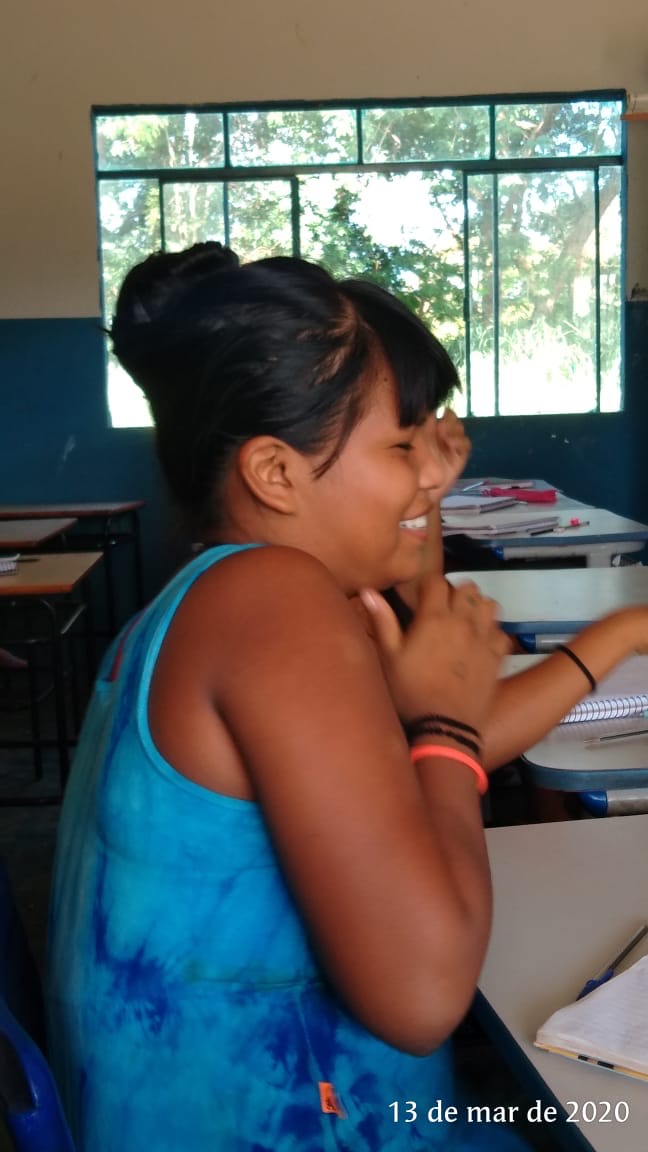
The younger generation also loses an important life teacher, guardian and counsellor. “When young people no longer have a guide, they will be forced, little by little, to insert themselves into Western society that despises them for being Indigenous,” Cobera Mori explains.
Despite being illiterate, Aritana was fully aware that he had been born into a world distinctly different from that of the generation he would leave behind. As an elder, he was traditional and old-fashioned. He did not know how to use a mobile phone or computer. He would often warn the Yawalapiti youth of the negative aspects of the outside world, which continues to spark so much interest among them.
Aside from being chief of the Yawalapiti people, Aritana was known as the “chief of chiefs” of all the ethnic groups currently inhabiting Xingu National Park. As a skilled peace mediator between the tribes within the Xingu as well as between Indigenous tribes across Brazil and the outside world, he dedicated himself to defending the environment, demarcation of land, health, education and the Xingu culture, leading him to represent all 16 ethnic groups in Xingu at the National Congress of Brazil.
Aritana was a diplomat. He was patient, he knew how to talk to people without shouting, his son and nephew explain. Aritana became the man he was because of the lessons that had been passed down to him in Yawalapiti.
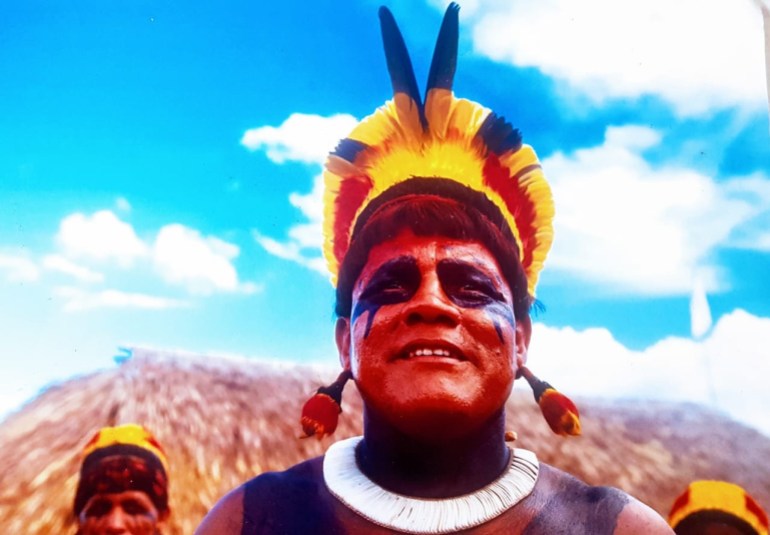
“Aritana always spoke with passion and emotion. This is the Yawalapiti language. It’s a language of emotion, of feeling and of the senses, one that is distinct from the languages from the other ethnic groups,” says Mendez.
The different groups regularly meet to trade commodities, plants, crops and artisanal products, as well as for Huka-Huka fights, ceremonies and intermarriage. But despite this interaction, each tribe in the park maintains its own language.
However, because of rising numbers of intermarriages where the mother’s language passes on to younger generations, not the father’s, the lack of female Yawalapiti elders in the reserve meant Aritana’s native tongue was diminishing.
It was only when he would meet with other men to smoke outside the sacred house in the men’s circular arena at twilight that Aritana would speak his native language. When the women had retired for the night, he would play the flute and speak Yawalapiti with a handful of elders.
The other languages favoured by the younger generations in his village include Kuikuro and Matipulo, both belonging to the Karib linguistic family, as well as Kamaiura and Aweti, both from the Tupi linguistic family. Today, the younger generation in Xingu also speak languages from the Caribbean linguistic family such as Calapalo, Cuicuro, Matipu and Naugua, as well as Portuguese which they learn in school, from television and online, and which they use for trading with outsiders.
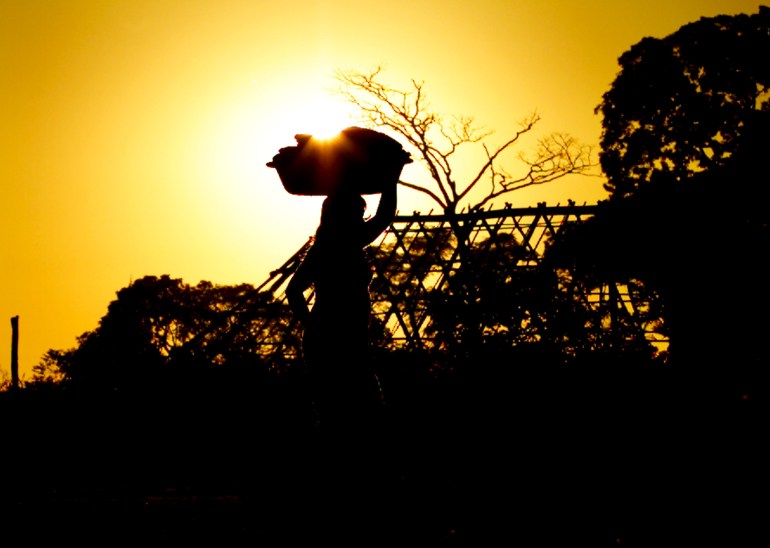
Painful memories of extinction
Anthropologist Adelino Mendez recalls the level of proficiency with which Aritana’s generation spoke Yawalapiti and the pain and despair it caused Aritana to see his language vanish when elders died.
As Tapi’s father watched his mother tongue dwindle, it evoked painful memories of a time when his people were on the verge of extinction.
Mendez recalls the stories Aritana told that had been passed down from his father about how their people were beset by Western-imported epidemics, colonisation and massacres by other tribes. When the first white man made contact with the tribe in 1887, it was already struggling. German explorer Karl von den Steienen reported that tribe members were so impoverished they barely had any food to offer him.
At the end of the 1930s, a massacre by another tribe claimed many lives, including that of their leader, Aritana’s grandfather. The community was forced to flee their native village and separate.
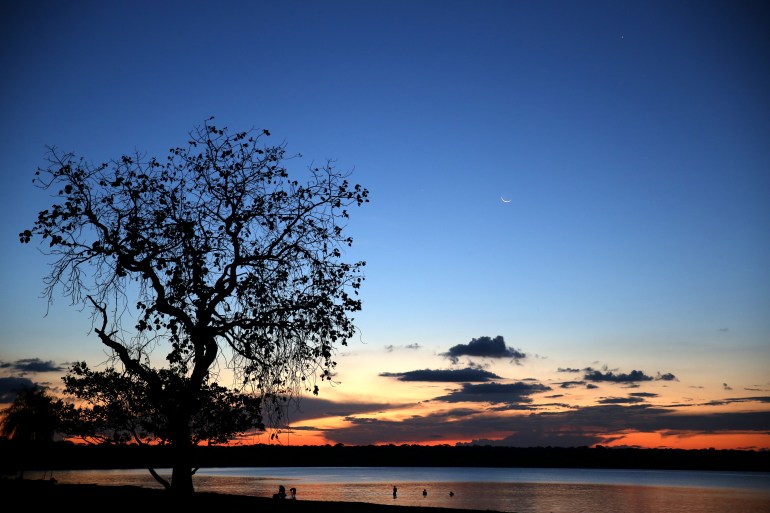
Aritana’s father Paru Yawalapiti, his uncle Chief Raoni, and the Villas-Boas brothers – Brazilian Indigenous rights activists – learned during a 1940s government expedition in Mato Grosso about the devastating effects contact with the outside world was having on Amazonian tribes. They set out to reclaim their ancestral lands and re-organise themselves as a group in the new Xingu Indigenous village in the 1960s, seeking out surviving Yawalapiti in other villages such as Kalapalo and Ipawu and inviting them to Xingu. But, despite regrouping in the late 1960s, the community Aritana grew up knowing had diminished to just 25 individuals.
When Tapi was born in 1977, there were only 20 Yawalapiti speakers left in the village.
Fighting for a personal identity
Cobera Mori says: “Since the colonial period, the Brazilian state has been characterised by genocidal and ethnocidal actions against Indigenous populations – above all, the denial of their original cultures and languages. This fact still continues today, especially with the policy of the current government.”
Since far-right Brazilian President Jair Bolsonaro took office in January 2018, Cobera Mori says, he has employed increasingly anti-Indigenous rhetoric and this stance has only worsened during the pandemic. The Brazilian government’s choice to “do nothing” and its failure to protect these vulnerable communities led Indigenous activists and leaders to write an open letter claiming that the president is actively attempting to weaken Indigenous people’s unique identity.

At the start of the pandemic, the Brazilian government created a new classification system for determining who counts as “Indigenous”. SESAI, the federal Indigenous health service, has only tracked coronavirus cases inside demarcated Indigenous territories, and not among Indigenous people living in villages or cities outside of these territories. As a result, experts say the real number of Indigenous people who caught and died from the disease could be three times the official recorded number, leading to an undocumented loss of Indigenous culture and identity that has largely gone unnoticed.
According to Apib, an organisation that gives a voice to Brazil’s Indigenous people, more than 400 Indigenous people have been left out of SESAI’s reported COVID-19 tally, and only two Yawalapiti tribe members have been reported to have died from the disease when at least one other death has been confirmed by family members.
Preserving the past
Tapi – tall, slim and the picture of his father as a young man – spent his adolescent years in isolation from the rest of the community, learning the language, rituals, ceremonies and stories of his father and other Yawalapiti elders until he came of age at 15 – as is the custom of the tribe.
He remembers his father saying to him: “Son, it is your responsibility, the young people, to take care of the rainforest, the river and the land. Tomorrow you may be giving your child this land.”

Tapi knew that without adequate documentation, his father’s mother tongue would disappear, never to be revived. Wanting to realise his father’s dream, he decided to dedicate his life to revitalising the language, which he understood but rarely spoke as he communicated mainly in his mother’s language of Kamarayu.
To this end, Aritana decided that Tapi would leave the community and attend the State University of Mato Grosso, where he would categorise, write and translate the Yawalapiti language to preserve it for generations to come. He would travel thousands of miles from his Indigenous lands to transcribe, study and deconstruct recordings and videos of conversations he had with his father in order to formally document his ancestral language.
Becoming an apprentice of sorts to his father, Tapi began interviewing Aritana, documenting his traditional knowledge in recorded conversations he later transcribed and transferred to CD back on campus.
After hearing of Tapi’s work, linguist Ana Suelly Arrunda Cabral from the University of Brasilia invited him to pursue a masters degree in Yawalapiti under her supervision in 2018. Tapi spent two months of the semester studying in Brasilia and the remainder charting the memory of his father and other Yawalapiti-speaking elders in the forest of his home.
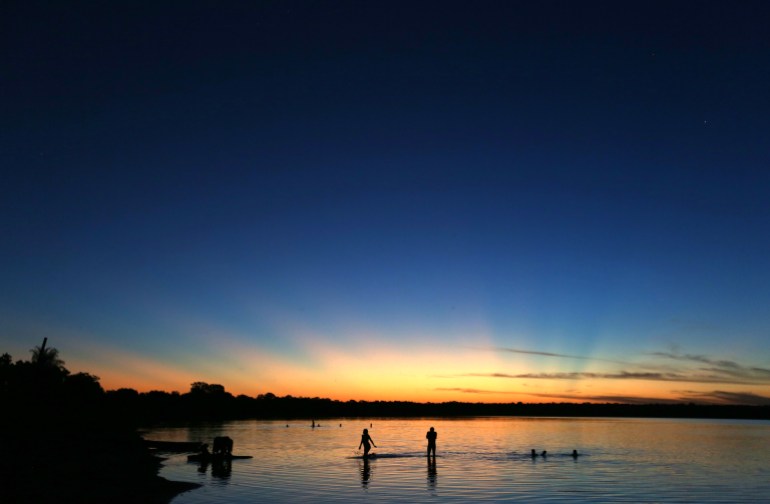
Tapi’s mission is to produce a systematic study of the language, in terms of phonology, grammar and lexicon. He has at his disposal the most complete descriptive study ever published on the language, created more than 40 years ago and recovered by the National Museum in Rio de Janeiro. He aims to prepare a pedagogical grammar for the language and transform his academic thesis into something the younger people of his village will be able to learn.
Crucially, he will also prepare a bilingual dictionary (Yawalapiti-Portuguese-Yawalapiti) and school textbooks in the language.
His work is of extreme importance for the Yawalapiti people, as well as for researchers and students of Brazilian Indigenous languages.
Studying the Yawalapiti language has already brought unique insights into the world view of a tribe that has nominal classifiers not only for male and female but also for texture, shape and even odour. Things are not just “things” in Yawalpiti, they possess nuances that only it can express.

Take the verb “to kill” for example. “In the Yawalapiti language, there will be various different ways to say this,” Tapi’s teacher, Ana Suelly Arruda Cabral, explains. “How many? ‘Kill many’, or ‘kill many, many’ and how to kill? With a bow and arrow? These linguistic differences were often a matter of survival for the tribe during its history of invasion.”
It is such wisdom that we lose every time a language passes into silence, she says. With just a handful of ancient speakers left, Tapi’s work was already urgent, but now, with his primary source gone, his work is what experts call an “emergency documentation”, a race against time.
A race against time
Tapi had been due to defend his thesis at the beginning of this year but then the pandemic struck, putting his studies on hold. He has now returned to Brasilia and is working with his teacher around the clock to salvage and categorise what they can of the language. He is due to defend his thesis imminently.
Sitting in his teacher’s home at dusk, Tapi says with conviction: “I’m battling to save my father’s language from disappearing. My father always said to me: ‘Son, you are an academic. You learned to speak Portuguese, you know how to write, but you should not forget our culture. Keep your culture. You were born a Yawalapiti.’”
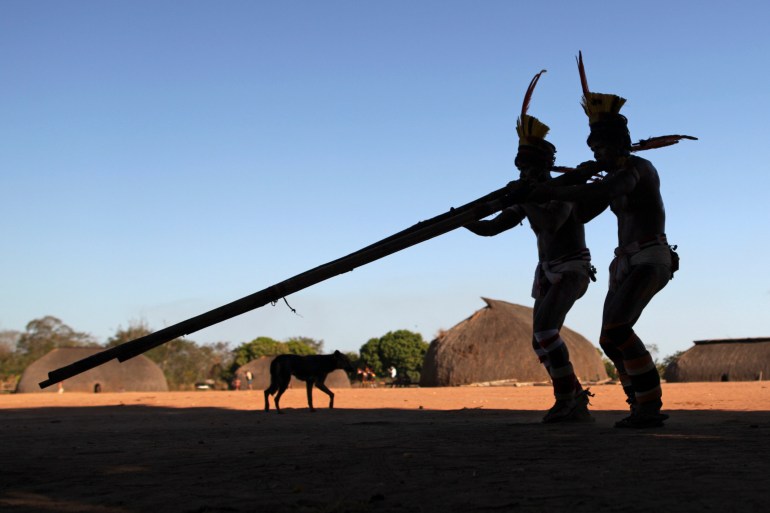
Tapi’s documentation will become be shared with the world on YouTube, and his thesis will be publicly distributed so others can continue the fight to ensure the survival of Yawalapiti.
For such languages to see a revival, a keen community interest and resources adequate for teaching younger generations are key. Although linguists are sceptical, previous revitalisation efforts have succeeded in bringing near-extinct languages back to life.
With children now learning to read and write in his village, Tapi believes it is possible to rescue his ancestral language. After all, he himself had to learn Yawalapiti from scratch.
A short walk from his house, in a classroom with a thatched roof and white-washed concrete walls looking out over the forest – provided with funds from the FUNDAI (Fundação Municipal do Meio Ambiente de Içara) – Walamatiu Yawalapiti, 35, Tapi’s cousin on his father’s side, stands shirtless in sweltering temperatures in front of a class of 10 schoolgirls.
On a blackboard he writes “/u”/”water”.
One student giggles as she tries to repeat after her teacher. Others gaze out of the windows as the echoes of howler monkeys bounce through the trees and into the classroom.
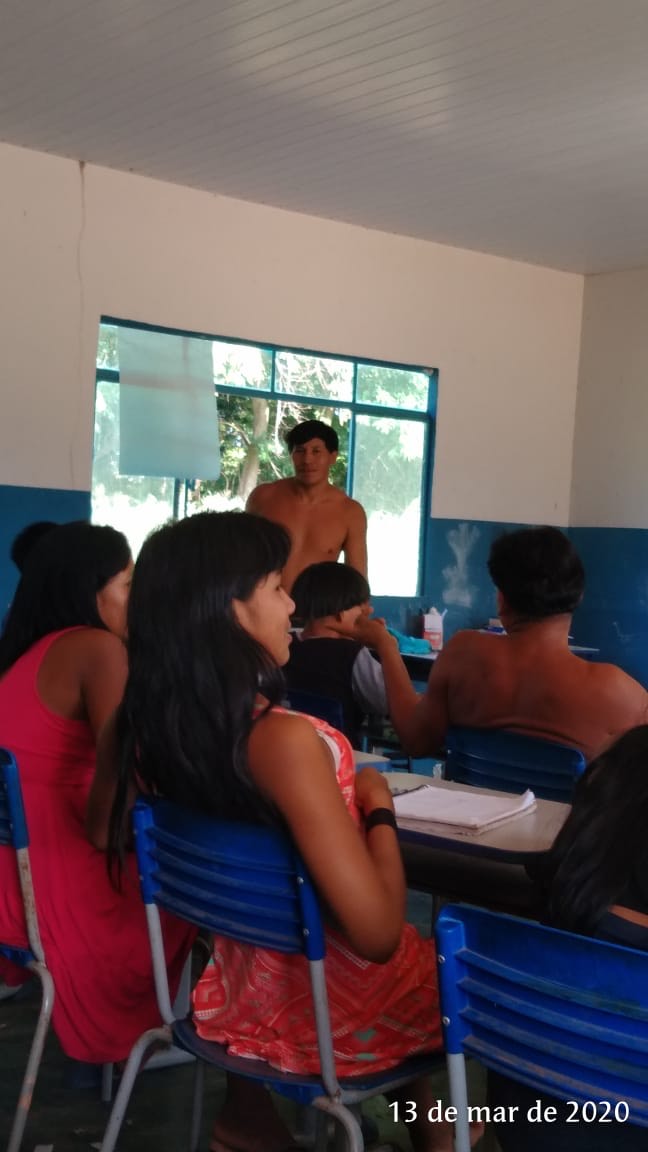
Walamatiu was teaching the feminine form of Yawalapiti to the girls, starting with basic greetings, numbers, nouns, names of birds, fish and trees. But that was before the pandemic hit and classes were cancelled.
With only three remaining fluent Yawalapiti speakers, Walamatiu’s mission is more pressing than ever. “Classes are on stand-still because of the pandemic, but once it is safe, I will continue to teach again so that Aritana’s language does not disappear,” he says.
“Children have the capacity to learn a language very quickly, and they have already learned the basics in just one month. They loved the classes. My hope is that, with the help of Tapi’s documentation, by the end of 2021, we will have at least 20 children both male and female speaking the language fluently. The younger generation will be those who determine the future of Yawalapiti, but first, we must give them something worth fighting for.”
Tunulli Yawalapiti, Aritana’s brother, is also on board: “I want to teach my brother’s language to school children … Tapi needs all the support he can get”.
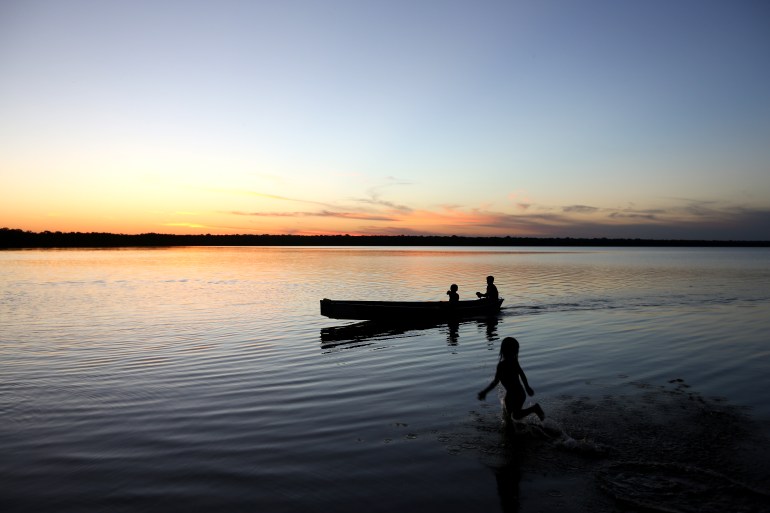
Scholars who know Tapi are optimistic. “Tapi is the best speaker of Yawalapiti alive,” says Mendez. “A speaker who can revive, document and teach this language. His extreme dedication will help this language grow.”
Tapi and his teacher are also hopeful that his two uncles who speak Yawalapiti, although not as fluently as his father, can help him with this endeavour.
“I’m racing,” Tapi says over the phone from a library in the University of Brasilia, just weeks before he is due to defend his thesis.
“I will not lose this fight,” he adds.